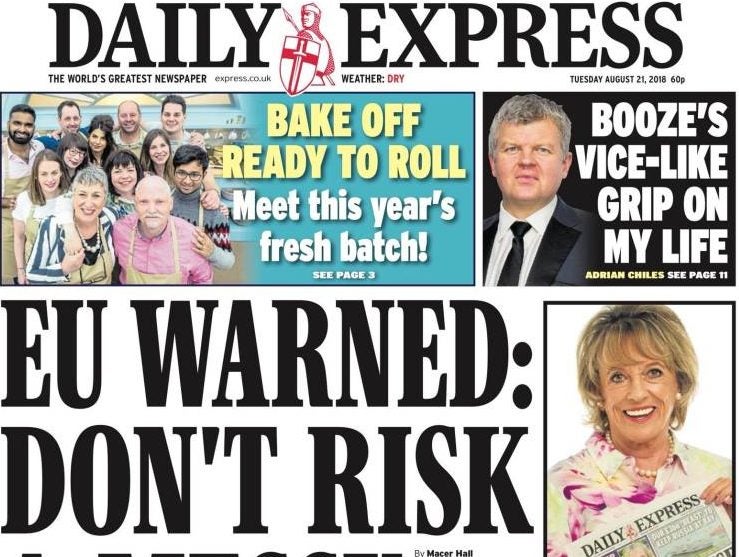
The Daily Express published a picture of the wrong woman in its coverage of a London hammer attack after being sent the image by two agencies.
The Independent Press Standards Organisation upheld a complaint from Anna Gos, who was pictured online and in print on 21 August alongside an article headlined: “I didn’t recognise girl after hammer attack.”
The article, which has since been removed online, reported that a woman with the same name was “repeatedly bludgeoned near her home” in south east London alongside quotes from witnesses and her employer.
Gos said the article was in breach of Clause 1 (accuracy) of the Editors’ Code of Practice because it included an image of her rather than the real victim.
She said the photo had been taken from her social media and no attempt had been made to contact her before publication.
Gos added that the use of the photo had “caused distress to her family and friends, and disruption to her personal and professional life”, IPSO said.
The Daily Express accepted that the photo had been used in error and apologised for the distress caused.
It said two agencies had provided it with the same photograph, and that it had relied on them to check the right person was pictured.
Upholding the complaint, IPSO said: “A photograph of the complainant had been included, prominently and in error, identifying her as the victim of a serious crime.
“The publication had obtained this photograph from two agencies, and there had clearly been a failure on the part of these agencies to take care over the accuracy of the information they provided.
“The preamble to the code makes clear that publications are ultimately responsible for any breaches of the code that might result from the use of external contributors.”
The Daily Express had already removed the photo from the article and offered to publish an apology and correction in print and online.
However Gos declined because she “didn’t want anything further to be published about the case, even if it was intended to correct the inaccuracy”, according to IPSO.
The regulator said there was “significant public interest in recording that an inaccurate image had been published” and ordered the Express to publish its offered correction.
The Complaints Committee said a correction would not “reveal any private or insensitive information about the complainant, or the victim of the attack, as it would not result in the republication of the image which was the subject of the complaint”.
Daily Express publisher Reach is pursuing compensation claims against press agencies where errors have led to legal action, Press Gazette has reported.
Read the full IPSO ruling here.
Email pged@pressgazette.co.uk to point out mistakes, provide story tips or send in a letter for publication on our "Letters Page" blog
